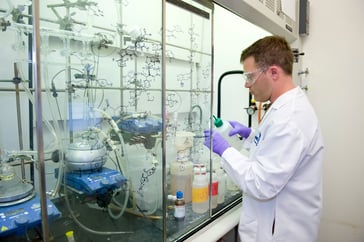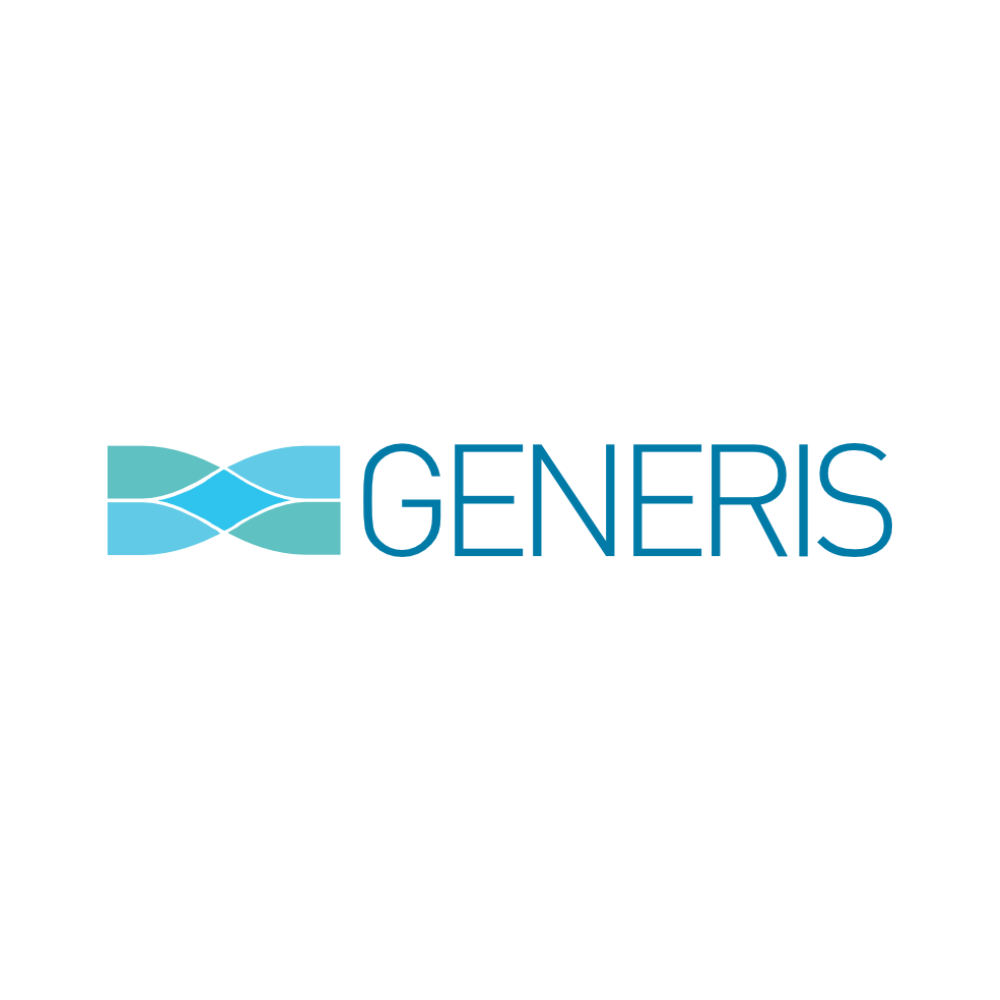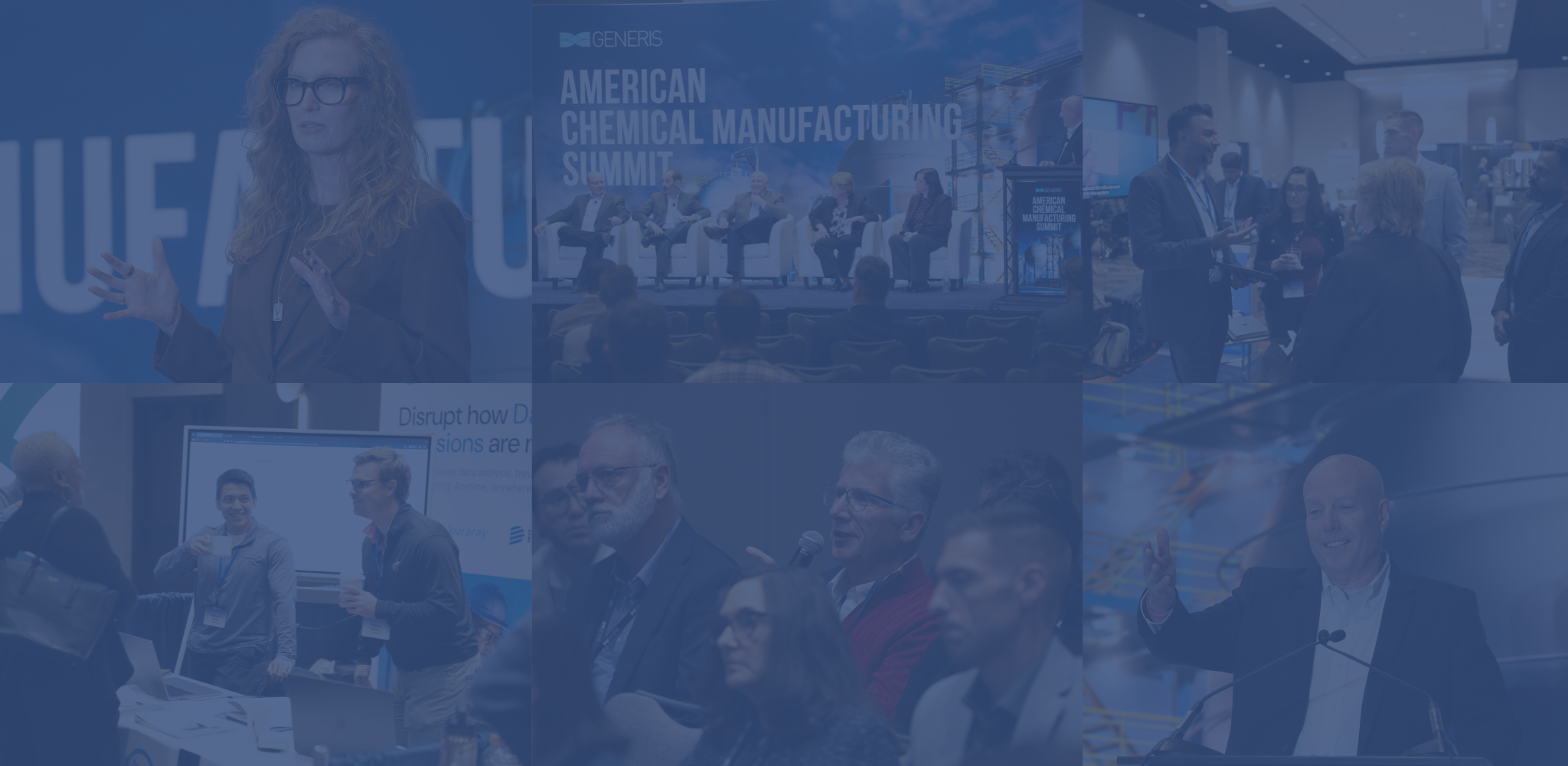As the Chief Quality Officer and Senior Vice President at Amgen, Jackie Elbonne is passionate about elevating and leveraging Quality as a strategic enterprise driver to deliver better patient experience and breakthrough products to patients.
In anticipation of her session at the upcoming American Biomanufacturing Summit, we had the opportunity to speak with Jackie and receive a preview of what she will be discussing during her session.
From explaining the four pillars of Quality & Compliance at Amgen—to sharing how an organization can ensure they are adaptable to change while still maintaining high-quality standards—Jackie provided crucial insights relevant to any organization in the industry.
Continue reading below to learn more about Jackie’s incredible work at Amgen:
Thank you, Jackie, for meeting with us. Could you begin with a brief introduction about yourself and your responsibilities in your current position?
My name is Jackie Elbonne and I am the Chief Quality Officer and Senior Vice President of Amgen, a global leader in biotechnology that develops innovative medicines for serious illnesses.

I have been with Amgen for just over 2 years, (previously with Bristol Myers Squibb (BMS) where I was Chief Quality Officer), with responsibility for quality and compliance oversight of the company’s biologics, pharmaceutical, and cell therapy product portfolio worldwide.
As the Chief Quality Officer at Amgen, I am responsible for overseeing the quality and compliance of GxP activities from R&D to Manufacturing and Commercial Operations.
In this role, I lead a global quality organization of more than 2,000 professionals worldwide. My
role is to ensure that we deliver on our mission to serve patients with the highest levels of
quality, from discovering and developing new breakthrough products to addressing serious
diseases to how we reliably deliver high quality safe and effective medicines to patients and
customers in today’s dynamic global environment. Ensuring we have a strong quality culture
that fuels innovation, drives learning and continuous improvement and builds future-ready
capabilities are key elements to ensure executional excellence and competitive advantage.
During your presentation at the American Biomanufacturing Summit, you will discuss the pillars of quality and compliance. Could you elaborate on what these pillars are and how they form the foundation for ensuring high standards in biopharmaceutical operations?
At Amgen, our mission is to serve patients. One of our company values is Ensuring Quality. It is a cornerstone of how we achieve our mission. It unites us all and guides our work on a day-to-day basis, in terms of what we do and how we do it. It means seeking the highest-quality information, decisions and people while producing high-quality products and services. At Amgen, quality is woven into the fabric of everything we do.
We created four strategic pillars for quality and compliance that span the enterprise that strives to deliver better patient and customer experience and sustainable, competitive business performance now, and in the future, as we navigate the global challenges and opportunities, we all face. We cannot always predict the future, but we can be ready for it.
The pillars are designed to continue to foster a culture of quality excellence that inspires, develops, and empowers employees at all levels to do their best work.
Pillar 1: Implementation of a single integrated GxP quality system powered by digital
Pillar 2:Enablement of internal and external innovation
Pillar 3: Enterprise-wide accountability for patient-centric quality outcomes
Pillar 4: Inspired, empowered, and future-ready global talent
I look forward to discussing these in more detail at the April summit.
"Our leadership attributes represent capabilities that we think are important now, and in the future. They are Adapt, Inspire, Integrate and Accelerate. Each of these attributes contribute to building and sustaining a strong and vibrant quality culture."
When it comes to patient and customer outcomes, as well as business performance, you emphasized the use of quality and the pillars as a differentiator. How can organizations effectively leverage quality to stand out in the industry and achieve these positive outcomes?
As I mentioned in the previous question, the four strategic pillars are designed to deliver two differentiating capabilities.
First is differentiated business performance. Harnessing Quality to enable the speed of innovation and reliability in execution, while maintaining the highest standards of quality and compliance, is imperative in bringing new products to market and ensuring the reliable supply of high-quality commercial products. At Amgen, we have a saying “Every Patient, Every Time” and we strive to live this every day.
Second, is differentiated patient and customer experience. We recognize that organizations with a strong track record of quality and compliance performance with their products and services can gain the trust and confidence of patients, customers, regulators, and stakeholders.
To effectively achieve this, organizations must have a clear vision and strategy for ensuring quality and align their quality objectives to enable overarching business goals in the short, medium and long term.
You mention a Culture of Quality. How do you engage and empower cross-functional teams to embrace and contribute to a culture of quality excellence within the organization?
As a leader, I believe that engaging, inspiring, and empowering cross-functional teams to embrace and contribute to a culture of quality excellence is essential for delivering value to our patients, customers, and stakeholders.
As an industry, I think there’s opportunity to continue to expand our focus on quality from ones that’s been predominantly focused on products and their manufacture to ones that are becoming increasingly focused on innovation and enterprise-wide execution to deliver on the best overall experience for patients, customers and stakeholders.
So how do we do that effectively across the company? At Amgen, it starts with our established social architecture that we believe makes up our unique company culture. Ensuring Quality is one of our company values that we live every day. Another important part of our social architecture is our leadership attributes, which guide our behaviors and actions and how our work gets done. They apply to everyone across the company irrespective of level and whether you lead people or are a subject matter expert.
Our leadership attributes represent capabilities that we think are important now, and in the future. They are Adapt, Inspire, Integrate and Accelerate. Each of these attributes contribute to building and sustaining a strong and vibrant quality culture.
To inspire is to motivate and encourage others to achieve their full potential and contribute to the company's vision and goals. Inspiring leaders create a positive and engaging work environment, where people feel valued and recognized for their efforts can grow, develop, and
feel like they belong.
To accelerate is to deliver the best results faster and more efficiently, without compromising quality, compliance, or safety. We empower our leaders to make informed and risk-based decisions and prioritize the most impactful actions. And we aim for everyone at Amgen to embrace a culture of continuous improvement, where they seek feedback and learn from opportunities and successes.
To integrate is to collaborate and coordinate across functions, teams, and regions, that leverage the collective strengths and capabilities of the organization. Looking through an integrated lens enables our cross-functional teams to align and prioritize to ensure critical resources are focused on the most important and impactful work, as well as urgent needs, in a way that breaks down silos and promotes a culture of trust and transparency which is critical to a strong quality culture.
To adapt is to respond and adjust to changing conditions and situations while seizing new opportunities and challenges. Adapting leaders anticipate and prepare for future scenarios to effectively execute change. They also embrace a growth mindset, where they are willing to challenge themselves and their teams, and experiment with new ideas and approaches.
Quality culture is not only a technical or operational aspect of our business, but a social and behavioral one. By aligning our quality culture with our social architecture and leadership attributes, we create a strong and consistent foundation for our company's success. We believe that quality is not only what we do, but also how we do it and together makes us who we are. Building strong cross-functional teams that share a common vision and passion for quality is one of my main priorities as the Chief Quality Officer.
To continue the conversation on building strong cross-functional teams, your presentation will cover the coaching and mentoring of the next generation of biopharmaceutical leaders. Can you share insights into what key qualities or skills you believe are essential for future leaders in this industry?
Coaching and mentoring the next generation of biopharmaceutical leaders is a critical role we play and is vital for the continued evolution of the industry and how we get there.
There are three things I think about for next generation leaders who can drive quality and innovation in our industry.
1. Business leaders with an expertise in quality: Ensuring quality professionals build strong business and financial acumen to supplement their quality technical expertise is essential to elevating Quality from a tactical functional endeavor to one that is an enterprise value creation capability. In the words of Dr. Joseph Juran, it enables companies to move from a Small Q to a Big Q mindset and culture.
These are leaders who understand the principles and practices of quality management and can apply them in relatable ways to a range of different stakeholders to enable differentiating scientific, financial, and operational results across the product lifecycle.
There is also an ever increasing need to have quality leaders who can drive change. How a quality organization inspires, collaborates and influences cross functional teams to reach new heights of performance is essential to achieving this while adapting to changing regulatory and market demands.
In doing so, Quality Leaders can significantly scale their influence and impact and drive meaningful, sustainable change in quality culture and become role models for others to follow.
2. Building future-ready capabilities: As science, technology and innovation advance at an unprecedented speed, leaders need to keep pace with this changing landscape and anticipate emerging needs and opportunities. Leaders need to be agile and adaptable, and willing to learn new skills and technologies. Being curious and courageous to take on new roles, and lean into test and learn cycles are essential to inspiring and empowering the next generation of talent and teams to experiment with new ideas and solutions. Turning molecules into medicines requires strong partnerships with regulators, patients and other stakeholders. I like to see leaders engaging much earlier in their career to build these skills.
3. Creating a sense diversity, inclusion and belonging with a higher sense of purpose: It is so important that leaders value and respect the diversity of people and perspectives and create an inclusive environment where everyone can thrive and contribute. There is much research that shows how these elements drive superior business performance. I also believe it is vital for people to find a higher sense of purpose in their work in an environment where they feel they belong. This is more important than ever when we consider the disruptive world events that take place around us.
How do you ensure that your organization remains adaptable to changes in regulations, technology, and industry trends while still maintaining high-quality standards?

Ensuring that our organization remains adaptable to changes in regulations, technology, and industry trends, while still maintaining high-quality standards is a critical and ongoing challenge facing those in the biopharmaceutical industry. To address this challenge, we must adopt a proactive, agile, and fit-for-purpose approach to quality and compliance.
There are a few ways that we can do this:
1. Anticipate, monitor and influence changes in the external environment, with the goal of working together across the healthcare ecosystem to better serve patients and ensure the reliable supply of high-quality medicines.
2. Prioritize resources and efforts based on the level of risk and most impactful opportunities.
3. Remain agile. Being able to adapt and evolve as an industry will be critical to our success and our ability to continue to serve patients.
As I said earlier, we can’t always predict the future, but we can be ready for it. By doing these things, we can ensure that we remain adaptable and resilient to changes, while still maintaining high-quality standards.
"As I said earlier, we can’t always predict the future, but we can be ready for it. By doing these things, we can ensure that we remain adaptable and resilient to changes, while still maintaining high-quality standards."
We want to thank Jackie for taking the time to provide us with her incredible insights.
If you want to hear more from Jackie, be sure to attend the American Biomanufacturing Summit, where she will present a Fireside Chat titled "Defying Imagination to Drive Quality."
-------------------------------------------------------------------------------------------------------------------------------------------------------------------------------------------------------------
If you enjoyed this content, subscribe so you never miss a blog!
%20(1).png?width=773&height=112&name=Generis%20Logo%20full%20Colour%20(Large)%20(1).png)

.png)
-2.png)
